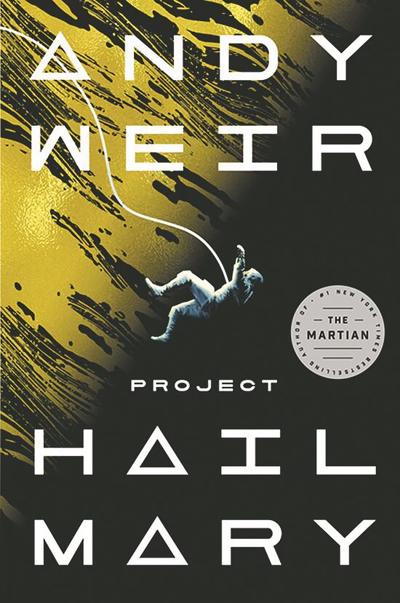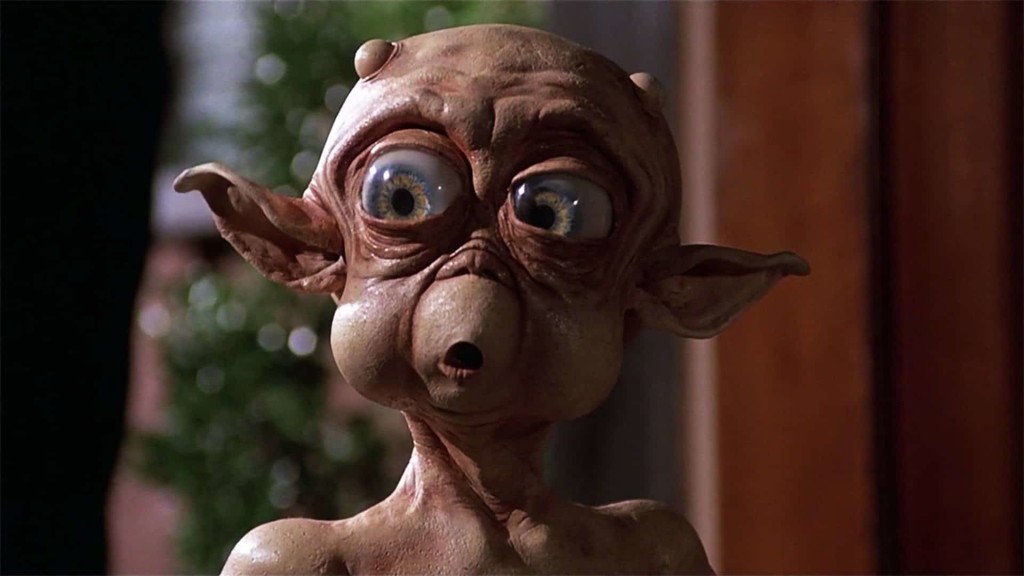The writer of The Martian attempts to remake Interstellar… with an E.T. Twist!
Genre: Sci-Fi
Premise: A science teacher is chosen for a deep space mission that will save the earth from a virus that is slowly darkening the sun.
About: Andy Weir, who’s responsible for one of the biggest self-publishing success stories ever – The Martian – is back in his wheelhouse with his third book, which currently has a staggering 37,000 reviews on Amazon. The movie adaptation will star Ryan Gosling and be directed by Phil Lord and Christopher Miller. Drew Goddard, who adapted The Martian, will adapt this one as well.
Writer: Andy Weir
Details: 482 pages
From what I understand, Project Hail Mary was originally conceived as a space opera, like Star Wars. However, after writing 75,000 words of this space opera and thinking it was terrible, Weir abandoned the novel and went off to write Artemis instead (his second book). But he couldn’t get some of the ideas from Project Hail Mary out of his head so he went back and repurposed the story to be more like… well, the book that made him famous: The Martian. Let’s see what the results were.
Ryland Grace wakes up in a windowless techy white room. He has no idea how he got here. But he does notice there are two other people in the room with him and they’re both dead. He senses he was part of some sort of crew which means that he must be in space. Why is he in space? He doesn’t know that yet.
He starts exploring the multi-module ship and finds a science lab. He’s supposed to work on something scientific. But what? The book is set up to jump back in time as Ryland remembers the pieces of his past, which come sparingly. The first thing he remembers is that the scientists of the world realized that the sun was getting darker. And if this continued, in about 30 years, humanity would be extinct.
Uh oh.
Back on the ship, Ryland starts doing experiments and realizes that the stuff that’s darkening the sun is called astrophage. And boy is this stuff nasty. Because it’s not just darkening our sun. It’s darkening all of the nearby suns in our galaxy. That’s when Ryland realizes that he’s not in his solar system, he’s in a completely different solar system called Tau Ceti. He’s been sent here because Tau Ceti is the only star that isn’t darkening. And his team – aka, him – needs to figure out what it’s doing right.
While Ryland is trying to figure out how to conduct experiments on local astrophage, he sees another ship! But this isn’t Star Trek where you just call them up on your space Skype. This is an Andy Weir novel. Everything is realistic. There are no phones. So these two ships have to figure out how to communicate some other way.
After a long drawn out process, the other ship docs to his and Ryland meets the sole occupant of the other ship, a spider alien he names “Rocky.” Several long chapters are dedicated to the two species learning each others’ languages (again, this is an Andy Weir novel where everything is dealt with realistically) and Ryland learns that Rocky is here for the exact same reason he is. His planet discovered the same thing, that Tau Ceti is the only solar system that isn’t affected by astrophage.
(Spoilers) Long story short, astrophage was created here. And because it was created here, it has a natural predator that can kill it. Which means all these two have to do is pack up some of these predator particles and head back to their respective homes. However, when something goes wrong at the last second, Ryland will be tasked with either going home to save mankind or going back and saving his new friend.
One of the things I’m a big proponent of is figuring out what you bring to the table that nobody else does and then writing scripts that lean into that strength. Think about it. Why would we show up to see something that feels exactly like everything else we’ve seen? We seek out material, in written and produced form, that has a distinctive voice.
Weir’s voice is science. Literally NOBODY else is doing what he’s doing. Let me repeat that because it’s important. NOBODY ELSE IS DOING WHAT HE’S DOING. If you’re the only one who’s doing something, you are a commodity. The studios can’t go to JJ Abrams or Quentin Tarantino and say, “I want a movie like The Martian that is steeped in hardcore science.” They wouldn’t be able to do it. They can only go to Andy Weir.
So now I ask you – what can studios only get from you as a writer? What is your unique commodity?
But Weir’s talents don’t stop there. If he only gave you science, you’d be bored out of your mind. He’s created a unique ability to package science in a fun easy-to-read way. Part of it is that he knows he has to move the story along so he never dwells for too long on anything before jumping to the next plot beat. But, also, he has an insane love for science, which comes off in the way he writes.
That’s worth something, by the way. Readers can feel when a writer is passionate about what they’re writing. It often adds an extra level of energy to the story.
That doesn’t mean Weir doesn’t have weaknesses. He does. Project Hail Mary has a huge weakness. Weir wants to write a thriller. He wants to keep the pages moving. But he also has to explain all this backstory so you know why he’s doing this. And writing a thriller in first person with extensive backstory doesn’t make sense.
So Weir cheats. He creates this amnesia storyline whereby Ryland only remembers the past bit by bit, and each time he remembers, we cut back to the past to get that new piece of information. Conveniently, these pieces of the past come to him in perfect linear order, allowing him to tell a perfectly linear story from the past as he intercuts to the perfectly linear present.
It’s a sloppy device and it almost derails the story. I mean here’s a guy who can spend ten pages on the importance of why a door corner must be measured by the Pythagorean Theorem in space lest the entire ship blow up, yet the rules of amnesia just happen to align perfectly to the extent that each bit of remembered past matches up perfectly with the story’s structure.
I think the big question coming out of Hail Mary is, can this be adapted into a movie as good as The Martian? And the answer is I honestly have no idea. I suspected, after reading The Martian, that we’d be bored hanging out with Matt Damon in a single room through that entire second act but I was wrong. So I’m not going to write Project Mary off.
But the make or break part of Hail Mary is, without a doubt, going to be Rocky. It isn’t just creating Rocky that’s going to be difficult. It’ll be the tone. Because he kind of sounds like a slightly smarter version of E.T. But the focus here on genuine science would imply that they’d want Rocky to feel more realistic. And yet, the way he’s written, he’s like a spider-dog that communicates through singing. I’m just not sure how you make that work onscreen.
I’m getting some Jar-Jar Binks vibes – or, gasp, Mac and Me – where he could inadvertently come off as comical. If he works, the movie will work. If he doesn’t, Ryan Gosling is going to be memed to death for the rest of his life. I would go so far as to guess that they’re going to change this alien to something more human. I just don’t know how you make a spider dog with no eyes that sings work.
All in all, Project Hail Mary is a fun book. It reads like a movie. It’s got a lot of fun little twists and turns along the way. If you liked The Martian, I see no way you wouldn’t like this too. It does have some weaknesses but they never overwhelm its strengths.
[ ] What the hell did I just read?
[ ] wasn’t for me
[x] worth the read
[ ] impressive
[ ] genius
What I learned: I hear a lot of writers share stories similar to Weir’s experience on Project Hail Mary, where they start off writing something and, once they get deep into it, realize it sucks. When that happens, it can be very difficult for the writer to give up because now they have the sunk cost fallacy in play: You’ve already written so much of the story. Therefore, even if it sucks, you should still finish it. However, I think the better option is to do what Weir did. Understand that just because a novel or a script isn’t working, that doesn’t mean giving up on it now means giving up on it forever. What often happens when we get some distance from our failed stories is that we realize there are still some kernels in them that could be used to create a different better story. We can then extract those kernels and write a book like Project Hail Mary, which was pretty darn good. That’s a better option than spending years trying to make something work that’s inherently flawed.




